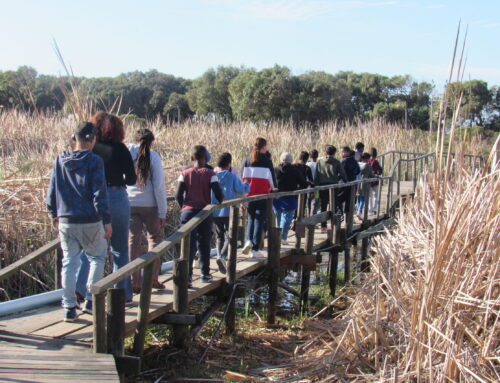Take a moment to marvel at the immense importance of our oceans, which cover more than 70% of our planet and serve as the lifeblood of Earth. Not only are they awe-inspiring, but oceans also act as the lungs of our planet, producing a significant portion of the oxygen we breathe. In fact, they contribute approximately 50% of all oxygen production on Earth. Beyond that, they play a pivotal role in climate regulation, absorbing carbon dioxide and providing a habitat for a vast array of species, from minuscule plankton to magnificent whales.
On this World Ocean Day, with the theme “Planet Ocean: Tides are Changing,” we are reminded of the crucial significance of our oceans and the urgent need to protect them. At Nature Connect, we support the IUCN’s Reverse the Red campaign, a global movement that inspires action to ensure the survival of wild species and ecosystems on the brink of extinction. This initiative believes in the power of collaboration and knowledge sharing to save species. By uniting our efforts, we can reverse the decline of biodiversity through simple steps and careful planning. Reverse the Red provides tools and partnerships aimed at preserving species and emphasises that everyone, from government agencies and NGOs to aquariums, botanical gardens, and individuals, has a role to play in protecting our precious marine life.
Today, let’s delve into the fascinating world of lesser-known marine organisms that call the oceans their home. By expanding our knowledge and appreciation of these remarkable creatures, we can deepen our commitment to safeguarding their habitats and ensuring a sustainable future for our planet’s oceans. Challenge yourself to discover and learn about new organisms you may have never encountered before, such as:
- Coelacanth (Latimeria chalumnae): Once thought to be extinct, this ancient fish species was rediscovered in 1938, making it one of the rarest fish in the world.
- Megamouth shark (Megachasma pelagios): With only about 100 reported sightings since its discovery in 1976, this shark species remains elusive. Its enormous mouth can reach an astonishing 4 feet wide.
- Vaquita (Phocoena sinus): As the world’s most critically endangered marine mammal, the vaquita is teetering on the edge of extinction, emphasizing the urgent need for conservation efforts.
- Leafy sea dragon (Phycodurus eques): A true master of camouflage, this mesmerizing creature blends seamlessly with kelp and seaweed beds, showcasing nature’s incredible adaptability.
- Giant squid (Architeuthis dux): Among the most enigmatic ocean dwellers, the giant squid can grow up to 13 meters in length, captivating scientists and enthusiasts alike with its elusive nature.
- Yeti crab (Kiwa hirsuta): Sporting a fantastical appearance, this peculiar creature is covered in setae, giving it a hairy appearance that adds to its allure.
- Blanket octopus (Tremoctopus spp.): This octopus carries a detachable “cape” that it can release for defensive purposes, a captivating adaptation.
- Giant Kelp (Macrocystis pyrifera): Reaching heights of up to 53 meters, this magnificent species forms underwater forests, providing habitat and sustenance for a multitude of marine organisms.
Beyond their biodiversity, oceans contribute significantly to the global economy by offering food, employment, and resources to millions of people. They provide boundless opportunities for exploration, recreation, and inspiration. However, oceans face numerous challenges, including pollution, overfishing, and climate change.
Nature Connect is committed to the vital cause of conserving and enhancing biodiversity, and we recognise the integral role of protecting the world’s oceans in achieving this mission. As stewards of the Earth, it is our collective responsibility to safeguard these invaluable ecosystems for the well-being of present and future generations. Let us take action, not just on World Ocean Day, but every day, to support initiatives that promote ocean conservation and raise awareness about the importance of preserving these remarkable environments. To discover local events and further engage with the global movement, we encourage you to visit www.worldoceanday.org. Together, we can make a difference and ensure a sustainable future for our planet’s magnificent oceans.






